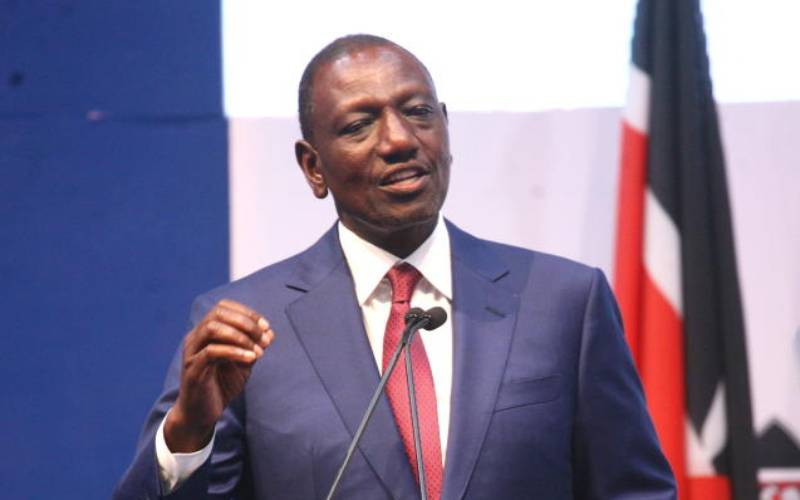×
The Standard e-Paper
Join Thousands Daily

President William Ruto speaking during the African Heads of State Summit at KICC, Nairobi. [Samson Wire, Standard]
President William Ruto has outlined plans to incrementally increase Kenya's tax rate, aiming for a rise from the current 14 percent to 22 percent by the end of his presidency.